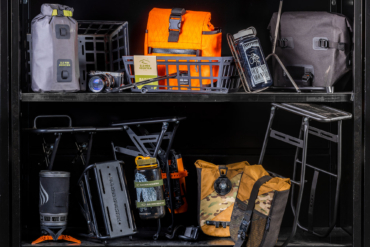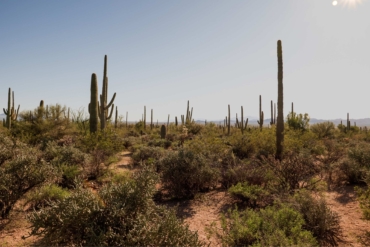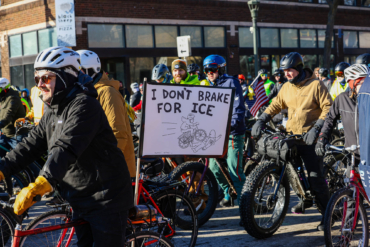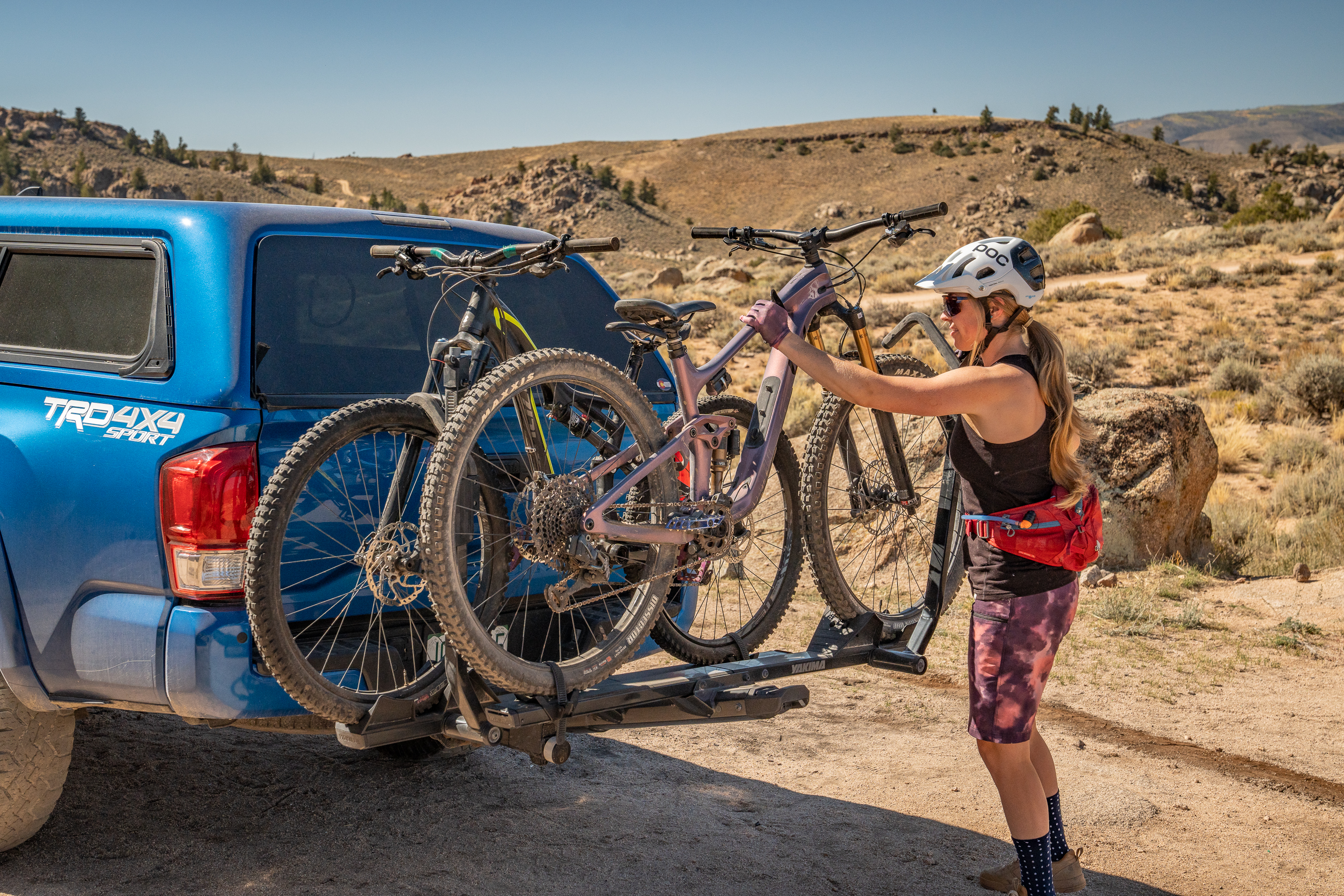Adventuring by bike is nothing new. People have been doing it for as long as they’ve had something to pedal. But over the past few years, bikepacking (off-road bike touring), in particular, has gained a burgeoning following.
As bikepacking grows out from its niche, the industry’s power players are scrambling to catch up with demand, but the most trusted brands remain the small-batch, handmade variety. Few (if any) are more well-regarded than Porcelain Rocket.
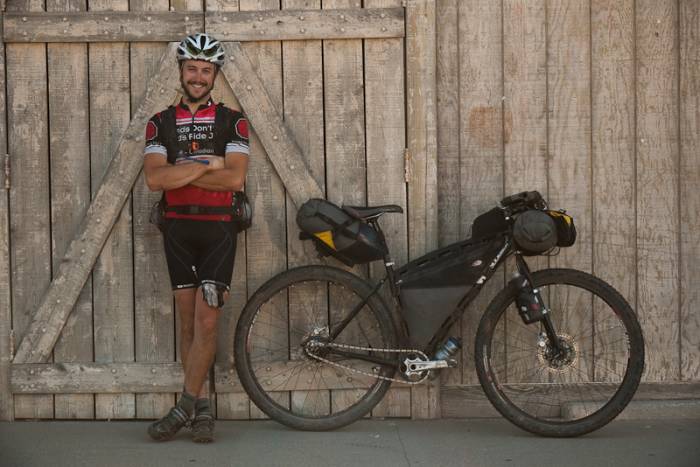
Scott Felter made his first bike pack with a sewing machine he found next to a dumpster. In 2008, he started a DIY blog called Porcelain Rocket, and less than a year later he was making packs under the same name, albeit with a slightly upgraded sewing machine.
Since the early days, not all that much has changed. Scott hired an assistant and bought some even fancier machines for the company’s Calgary workshop, plus there’s the whole worldwide-demand thing. But Scott is still humble to a fault, and more often than not, sacrificing sleep to make the best purpose-built bike storage systems out there.
Scott does what he loves — both on the bike and with a sewing machine — and he makes gear to help other people do the same. We sent him some questions to get an inside look at Porcelain Rocket, and, true to form, he responded on a rest day during a fat-bike tour through Tasmania.
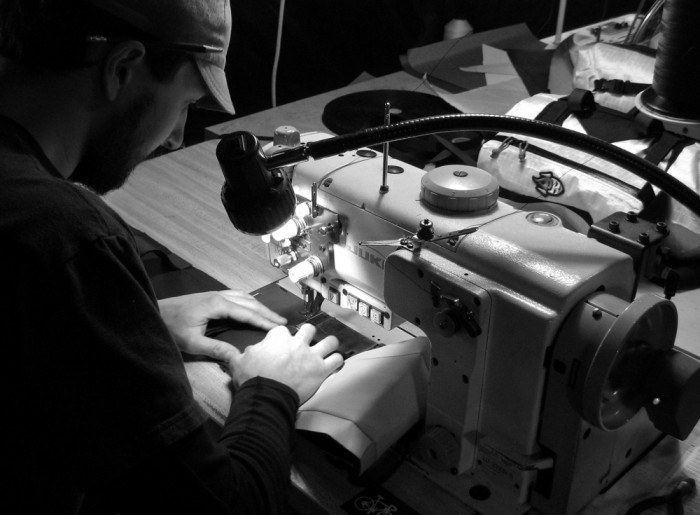
What’s your history with bicycles?
I grew up in New Orleans, which is a city where bikes just make sense. It’s flat, fairly compact, and there’s stuff to do all over the city. My father was quite ill for most of my childhood, and things weren’t always so happy in our house. So, the bicycle (my hella-rad Schwinn Frontier) was my escape, if you will. I raced road bikes in high school, and found mountain biking when I moved to Blacksburg, Virginia, for University.
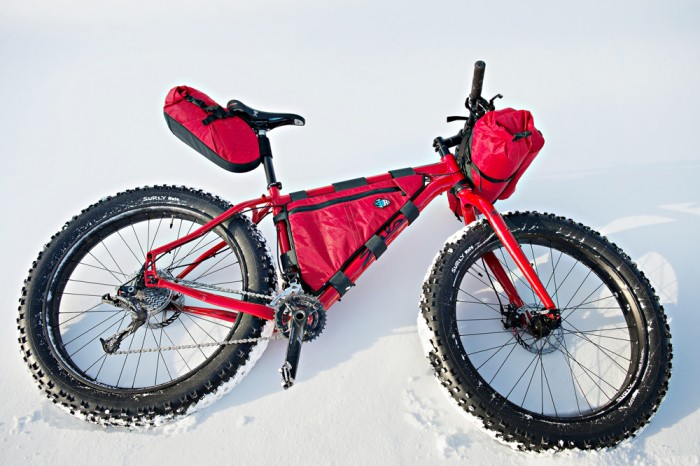
How long have you been making stuff?
When someone asks me what I “do,” I usually tell them I’m a maker. There isn’t really a time in my life that I don’t remember making or tinkering with things. Even in art/design school, I came to the realization that it was building dummies and mock-ups that I enjoyed above all else. I also worked as an auto mechanic during University, so it’s just sort of what I do.
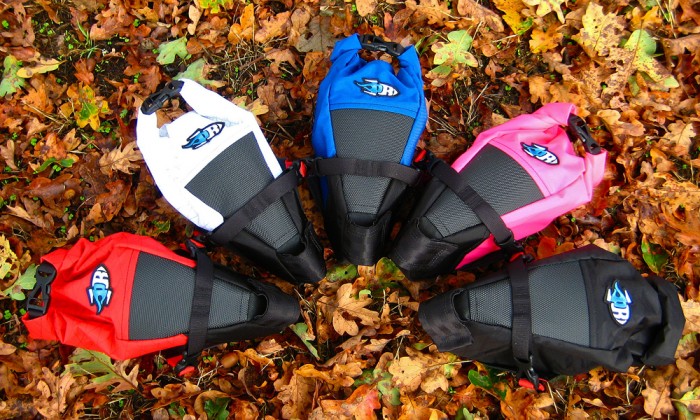
What got you into bikepacking?
After University, I moved to Santa Fe. Northern New Mexico and the four corners is a wealth of incredible exploring. I soon began lugging my BOB trailer into the woods for up to a week at a time. I’ve never really been on a road tour [only off-road and trail tours].
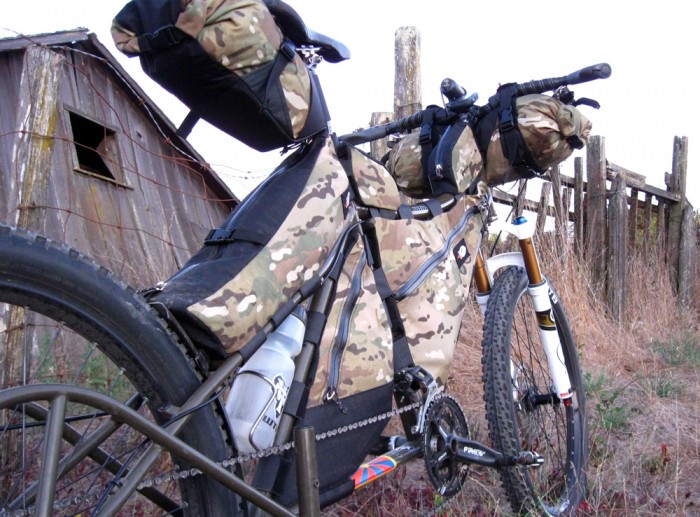
What drove you to start making your own packs?
I think like most who DIY, I didn’t really have much money, but I had skill with materials and tools. “Bikepacking” was just getting going, and Jeff at Carousel Design Works was the only commercial option for gear. So, I took a few tips about a really shitty domestic sewing machine that I found beside a dumpster from anyone who knew anything about anything. In about a month, I had a very well-used industrial garment sewing machine, and it was on from there… I had zero intention of selling gear or starting a business. It just happened. Not sure where the time’s gone.
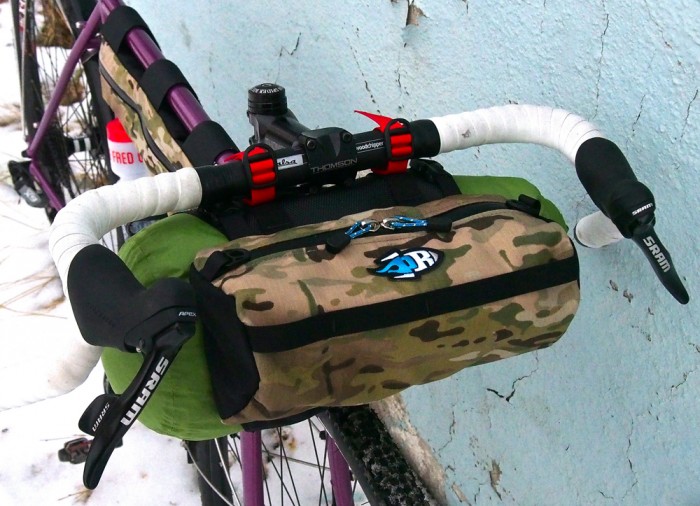
What’s kept you making packs?
To see the concept and final result in a matter of hours is very rewarding. As opposed to my former life as a ceramist, where you spend weeks to months on something, just to see it fail in the final stage of the process. Gear building (and the concept, design, realization) can be altered and shifted throughout the process. It’s never really over, which keeps things interesting.

Why should someone invest in a Porcelain Rocket pack?
My philosophy is to spend money in your community. If you’re passionate about something (in my case it’s bicycles), that’s where your money means the most. Seek out those who you think do the best work, and pay them to do it. I don’t have a lot of extra money, so I try and make what I do have count. Almost all of my bikes are handmade by people whom I’m proud to represent. I’ve worked very hard at aligning myself with people that I respect, admire and trust.
As far as Porcelain Rocket is concerned, our focus has always been on overall quality, through attention to detail. Innovation and collaboration is also huge.
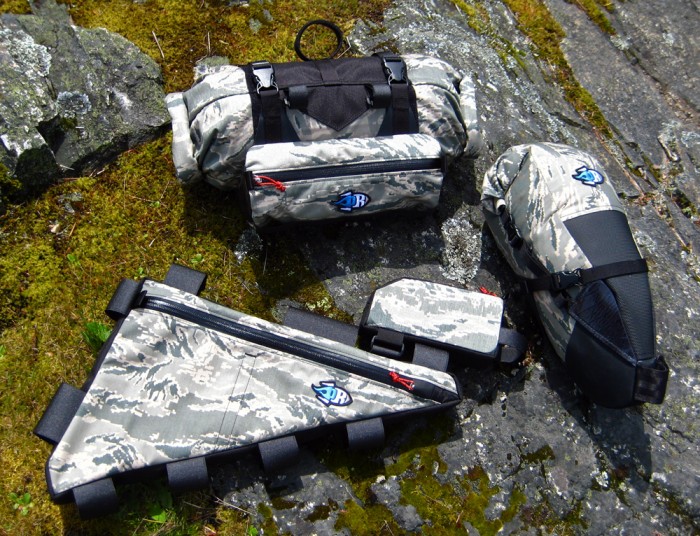
A lot of cyclists are obsessed with cutting weight. You’re more committed to durability. Mind talking on that a bit?
All this craft business means nothing if it doesn’t last! Of late, we’ve sought materials that are more durable than they are flashy, en vogue or lightweight for the majority of our gear. To a point, gear weighs what it must weigh. I’m of the mindset that if you like and trust the gear, you’re far more likely to use it. There’s a reason why materials like 500D Cordura have been around for so long. They work! Our gear still tips the scales on the lower end of the ‘bikepacking’ spectrum, even without flashy materials. That said, if someone’s after the lightest possible gear, and is willing to accept the sacrifices that come with that, we’ll build [ultra-light] cuben gear. Hell yeah, we will.
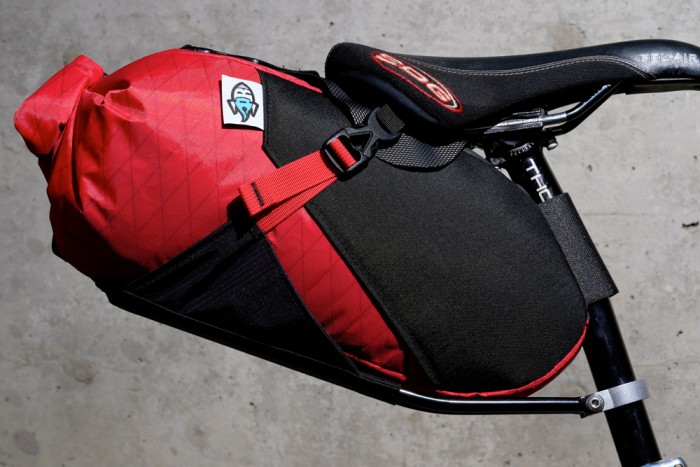
What percent of your materials are sourced in North America?
I’d say over 75% of the materials we source are made in North America, mostly the U.S. Some things, like plastic hardware, are simply better when they are made in Asia. They just are. We only use Japanese sewing machines, because they’re the best.
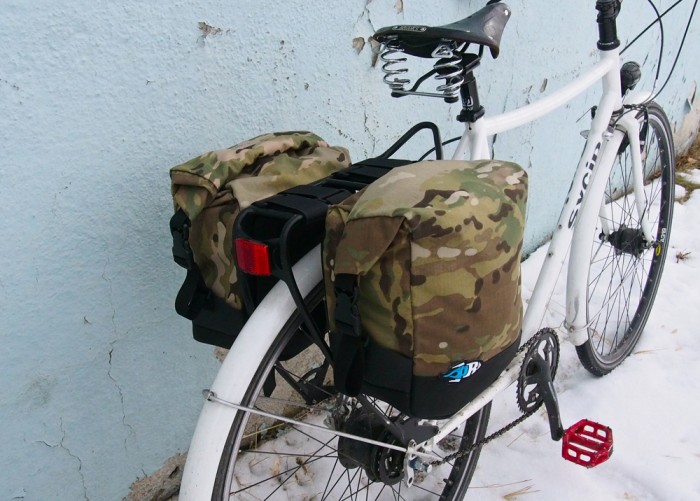
What’s ahead for Porcelain Rocket?
We just took on a partner shop in Bozeman, Montana, run by Cory Krull, who used to do proto/design work for Simms and Mystery Ranch. Cory has more design and sewing experience in his little toe than most of will ever have. He’ll be producing ‘stock’ gear, rolling out in the coming months. More packs means more adventures for more people!
–We put Porcelain Rocket’s Mr. Fusion seat system, MCA handlebar system, and partial frame pack to the test during a bikepacking trip in the Santa Cruz Mountains in February and were impressed across the board. An in-depth look at the packs, along with a spread of other North American-made products will go live on GearJunkie next week.
-Patrick Murphy

